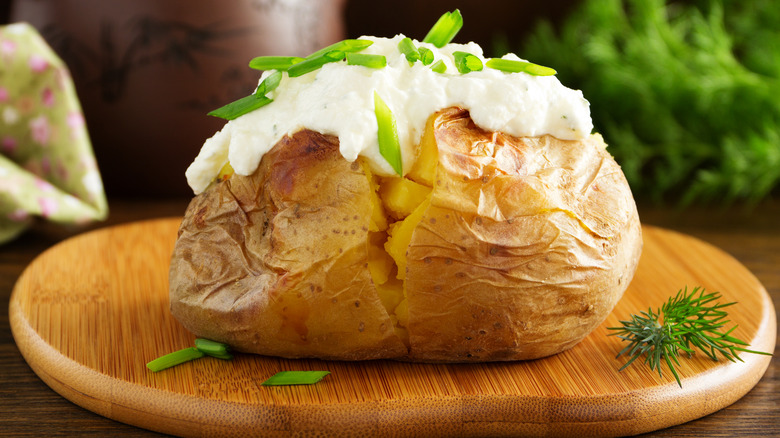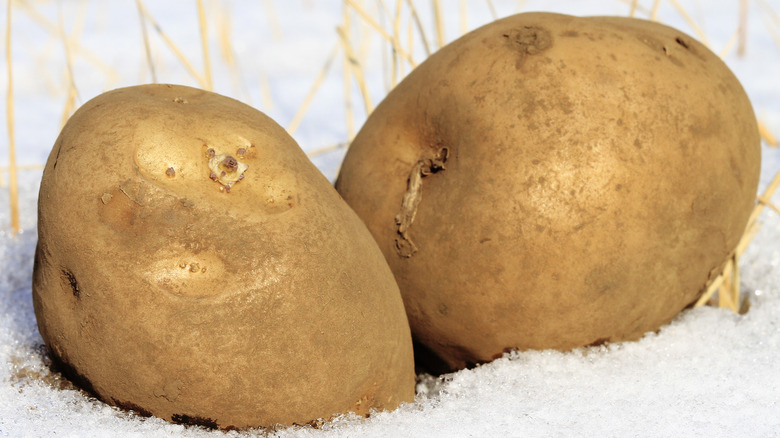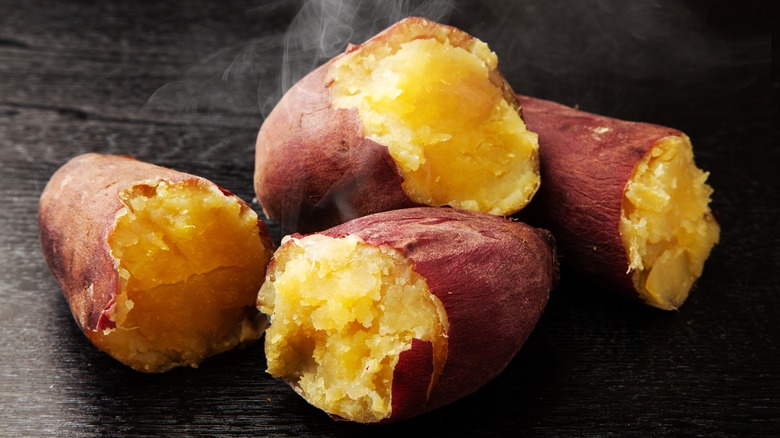Why You'll Probably Regret Freezing A Baked Potato
Who doesn't love potatoes? Whether you use them to make fries, or hash browns, mash them with or without creme, or add them to soups and stews, potatoes are a staple of the American diet. We can, in part, thank President Franklin D. Roosevelt for this.
During World War II, Roosevelt made raising potatoes a national priority, says Modern Farmer. While potatoes were definitely grown and consumed prior to this time via PotatoPro, it was Roosevelt's national campaign that really saw their production boom.
From then till now, Americans have had a love affair with potatoes. In fact, according to PotatoPro, we consume over 120 pounds of spuds on average per person each year. PotatoPro adds that these potatoes are consumed fresh and not frozen.
But why is it that experts say we should never freeze some potatoes, via EatingWell, but others are fine? The answer lies in the science behind it.
What happens when you freeze potatoes
According to the PennState Extension, when you freeze a cooked potato, the starch and water in it separate. Once you reheat the potato, the moisture is released, and you end up with a watery and far from an appetizing mess. That isn't to say, though, that you should never freeze potatoes.
Chef Mark Anthony suggests that the best way to freeze potatoes is to boil them until cooked all the way through, cut them into thin slices, and then place them in air-tight containers for freezing, via YouTube. He recommends this method for potatoes if you plan on cooking stews, home fries, or potato salad.
PennState makes similar recommendations but adds that you can achieve the best results by starting with smaller wax-type spuds that have been freshly harvested. The blanching is to stop any enzyme action from occurring during freezing. According to Martha Stewart, wax-type potatoes like Red Bliss, new potatoes, and fingerlings contain less starch and more moisture than other types of spuds.
Freezing a baked potato
In an interview with Martha Stewart, Chef Palak Patel stated that it was acceptable to freeze potatoes as part of a soup or sauce, but it was not advisable to freeze baked potatoes. As mentioned by PennState, ice crystals form, causing the water and starch to separate and, as Chef Patel opines, "lead to an unpleasant, watery consistency." Because of this, the potatoes will no longer hold their shape.
In contrast to this, LeafTV offers quite a bit of advice on freezing and reheating baked potatoes. For whole-baked potatoes, they recommend allowing the spuds to cool completely, freezing them uncovered, and then wrapping them in foil before placing the potatoes in freezer bags.
If you want to freeze stuffed or twice-baked potatoes, LeafTV suggests you avoid sour cream, oils, and butter. Fats do not freeze well and will lead to soggy potatoes. By the same token, the outlet recommends that you avoid freezing baked potatoes that you have garnished with onions, chives, or spring onions. Freezing alters their flavors and can result in a bitter taste.


